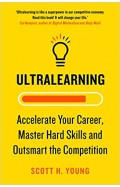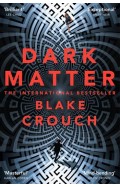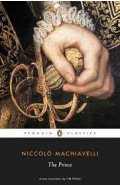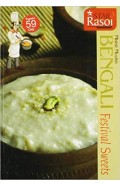How to Read a Book
By: Mortimer J. Adler
-
Rs 2,965.50
- Rs 3,295.00
- 10%
You save Rs 329.50.
Due to constant currency fluctuation, prices are subject to change with or without notice.
A CNN Book of the Week: “Explains not just why we should read books, but how we should read them. It's masterfully done.” –Farheed Zakaria
Originally published in 1940, this book is a rare phenomenon, a living classic that introduces and elucidates the various levels of reading and how to achieve them—from elementary reading, through systematic skimming and inspectional reading, to speed reading. Readers will learn when and how to “judge a book by its cover,” and also how to X-ray it, read critically, and extract the author’s message from the text.
Also included is instruction in the different techniques that work best for reading particular genres, such as practical books, imaginative literature, plays, poetry, history, science and mathematics, philosophy and social science works.
Finally, the authors offer a recommended reading list and supply reading tests you can use measure your own progress in reading skills, comprehension, and speed.
A CNN Book of the Week: “Explains not just why we should read books, but how we should read them. It's masterfully done.” –Farheed Zakaria
Originally published in 1940, this book is a rare phenomenon, a living classic that introduces and elucidates the various levels of reading and how to achieve them—from elementary reading, through systematic skimming and inspectional reading, to speed reading. Readers will learn when and how to “judge a book by its cover,” and also how to X-ray it, read critically, and extract the author’s message from the text.
Also included is instruction in the different techniques that work best for reading particular genres, such as practical books, imaginative literature, plays, poetry, history, science and mathematics, philosophy and social science works.
Finally, the authors offer a recommended reading list and supply reading tests you can use measure your own progress in reading skills, comprehension, and speed.
Zubin Mehta: A Musical Journey (An Authorized Biography)
By: VOID - Bakhtiar K. Dadabhoy
Rs 892.50 Rs 1,050.00 Ex Tax :Rs 892.50
Ultralearning: Accelerate Your Career, Master Hard Skills and Outsmart the Competition
By: Scott H. Young
Rs 3,415.50 Rs 3,795.00 Ex Tax :Rs 3,415.50
1000 Words - A Writer's Guide to Staying Creative, Focused, and Productive All Year Round
By: Jami Attenberg
Rs 4,495.50 Rs 4,995.00 Ex Tax :Rs 4,495.50
Dark Matter: The Most Mind-Blowing And Twisted Thriller Of The Year
By: Blake Crouch
Rs 2,245.50 Rs 2,495.00 Ex Tax :Rs 2,245.50
The Origins of Political Order From Prehuman Times to the French RevolutioN
By: Francis Fukuyama
Rs 4,045.50 Rs 4,495.00 Ex Tax :Rs 4,045.50
Manning Up: How the Rise of Women Has Turned Men into Boys
By: Kay Hymowitz
Rs 845.75 Rs 995.00 Ex Tax :Rs 845.75
The Obama Syndrome: Surrender At Home War Abroad
By: Tariq Ali
Rs 1,100.75 Rs 1,295.00 Ex Tax :Rs 1,100.75
The Quest For Meaning: Developing A Philosophy Of Pluralism
By: Tariq Ramadan
Rs 1,185.75 Rs 1,395.00 Ex Tax :Rs 1,185.75
Ultralearning: Accelerate Your Career, Master Hard Skills and Outsmart the Competition
By: Scott H. Young
Rs 3,415.50 Rs 3,795.00 Ex Tax :Rs 3,415.50
1000 Words - A Writer's Guide to Staying Creative, Focused, and Productive All Year Round
By: Jami Attenberg
Rs 4,495.50 Rs 4,995.00 Ex Tax :Rs 4,495.50
Dark Matter: The Most Mind-Blowing And Twisted Thriller Of The Year
By: Blake Crouch
Rs 2,245.50 Rs 2,495.00 Ex Tax :Rs 2,245.50
No recently viewed books available at the moment.
Zubin Mehta: A Musical Journey (An Authorized Biography)
By: VOID - Bakhtiar K. Dadabhoy
Rs 892.50 Rs 1,050.00 Ex Tax :Rs 892.50
Ultralearning: Accelerate Your Career, Master Hard Skills and Outsmart the Competition
By: Scott H. Young
Rs 3,415.50 Rs 3,795.00 Ex Tax :Rs 3,415.50
1000 Words - A Writer's Guide to Staying Creative, Focused, and Productive All Year Round
By: Jami Attenberg
Rs 4,495.50 Rs 4,995.00 Ex Tax :Rs 4,495.50
Dark Matter: The Most Mind-Blowing And Twisted Thriller Of The Year
By: Blake Crouch
Rs 2,245.50 Rs 2,495.00 Ex Tax :Rs 2,245.50














-120x187.jpg?q6)











-120x187.jpg?q6)







